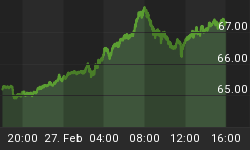Unsatisfied with the pace at which the federal government is acting to reduce greenhouse gas emissions, several U.S. states and a few Canadian provinces are forging ahead with their own initiatives.
In 2013, California kicked off a cap-and-trade program in an effort to reduce its emissions to 1990 levels by 2020. The first year of the program was a resounding success, with the state's economy expanding while at the same time adding renewable energy.
But carbon markets are more effective, and far more efficient, when they involve more entities in more places.
California is by far the largest generator of renewable energy, but capping emissions only within its borders could lead to "leakages" - dirty generators moving across the border to Nevada, for example, and selling power back to California. Leakage is a real problem, but one that could be easily resolved if more states sign up and come into the program.
That's why California has entered into a partnership with the Canadian province of Quebec to link up their carbon markets. It's a small step, but the two have already created the largest carbon market in North America.
Despite the vast distance between the western U.S. state and the eastern Canadian province, and despite the different makeup of their economies, the successful linkage has demonstrated the potential for a growing cap-and-trade system.
Now, as Bloomberg News reports, California and Quebec are actively seeking other states and provinces to join their alliance. Ontario is on their list. Several states in New England, Vermont in particular, are interested in joining. Also, Oregon and Washington have expressed some interest.
"Having a market with only California and Quebec is not ideal," Quebec Premier Philippe Couillard told Bloomberg. "We are working very hard to recruit new partners. If we just add a couple of western states, a couple of provinces, Ontario, and maybe some New England partners, we think that's good enough."
The idea is to build up a large carbon market that encompasses a big slice of economic activity in North America. If successful, some semblance of a North American cap-and-trade area could begin to appear, even while both countries' governments remain frozen in gridlock.
One complicating factor, however, is the Regional Greenhouse Gas Initiative (RGGI), a cap-and-trade program encompassing a collection of nine U.S. states in the northeast and mid-Atlantic.
The RGGI caps emissions on electric power plants and forces polluters to either clean up or purchase allowances on the market for their pollution. The proceeds are refunded to the states, which can choose to invest the money in a variety of ways to further reduce emissions or ease the burden on ratepayers. The program says more than $700 million in raised revenues have already been used toward energy efficiency, clean energy, and lowering monthly power bills.
It is unclear if and how northeastern states already in the RGGI might be able to join California and Quebec's effort. Vermont is the only state that has actively expressed interest, and Gov. Peter Shumlin has said he wants Vermont's participation with California and Quebec to complement, rather than replace, its membership in RGGI.
On the other hand, with functioning carbon markets in California, Quebec, and states in the RGGI, it is not clear why they all could not merge to become one entity. Some significant technical details would need to be worked out, but if places as far away as California and Quebec can link up, why not the northeastern U.S. as well?
"To be honest, I haven't given it a whole lot of thought," Kelly Speakes-Backman, chair of RGGI's board of directors, told Bloomberg in a Sept. 24 interview. "I met for the first time the minister of environment for Quebec yesterday, and it was really a five-minute conversation that we had. And I've personally had no discussions with California."
That could change as California and Quebec begin trying to actively recruit new members.
An alternative approach, put forth by a former top official at the Chicago Climate Exchange, calls for California to tweak its carbon market to make it easy for polluters in other states to opt-in on a voluntary basis even if their own states are not members. The idea is laid out in an Los Angeles Times op-ed, which says by doing this, California would be "creating a de facto national system with the stroke of a pen."
Such an idea would be controversial and complicated, but it underscores the fact that states have an array of creative options to reduce carbon emissions. And since the federal government is doing so little, it is likely that states will continue pushing the bounds of experimentation forward.
By Nick Cunningham of Oilprice.com















